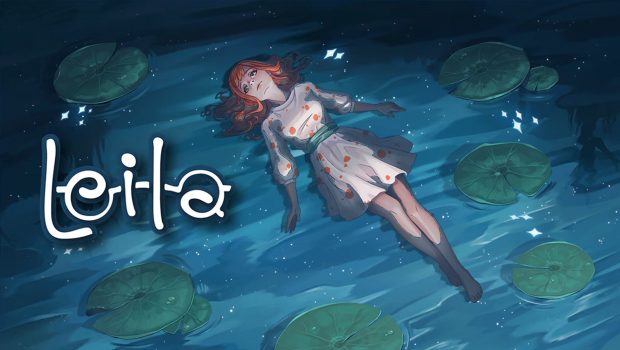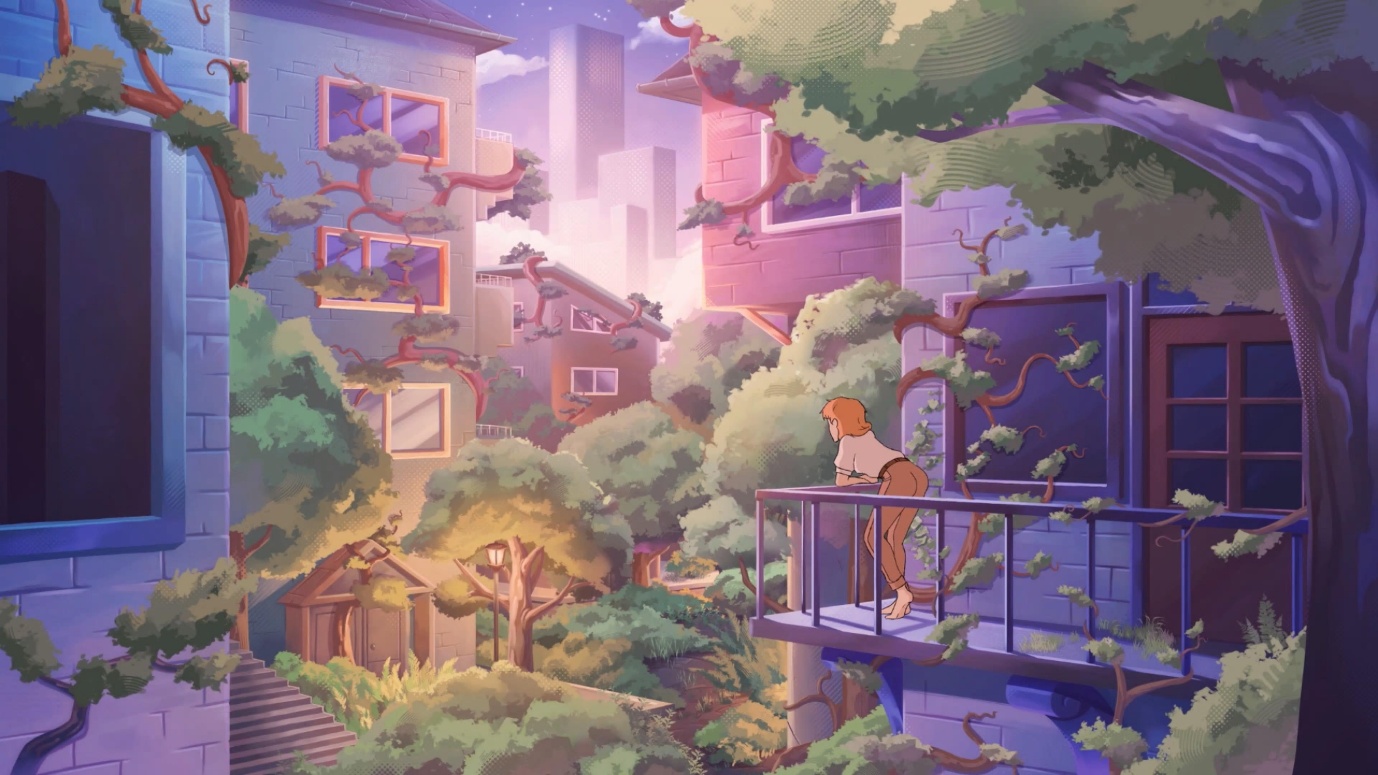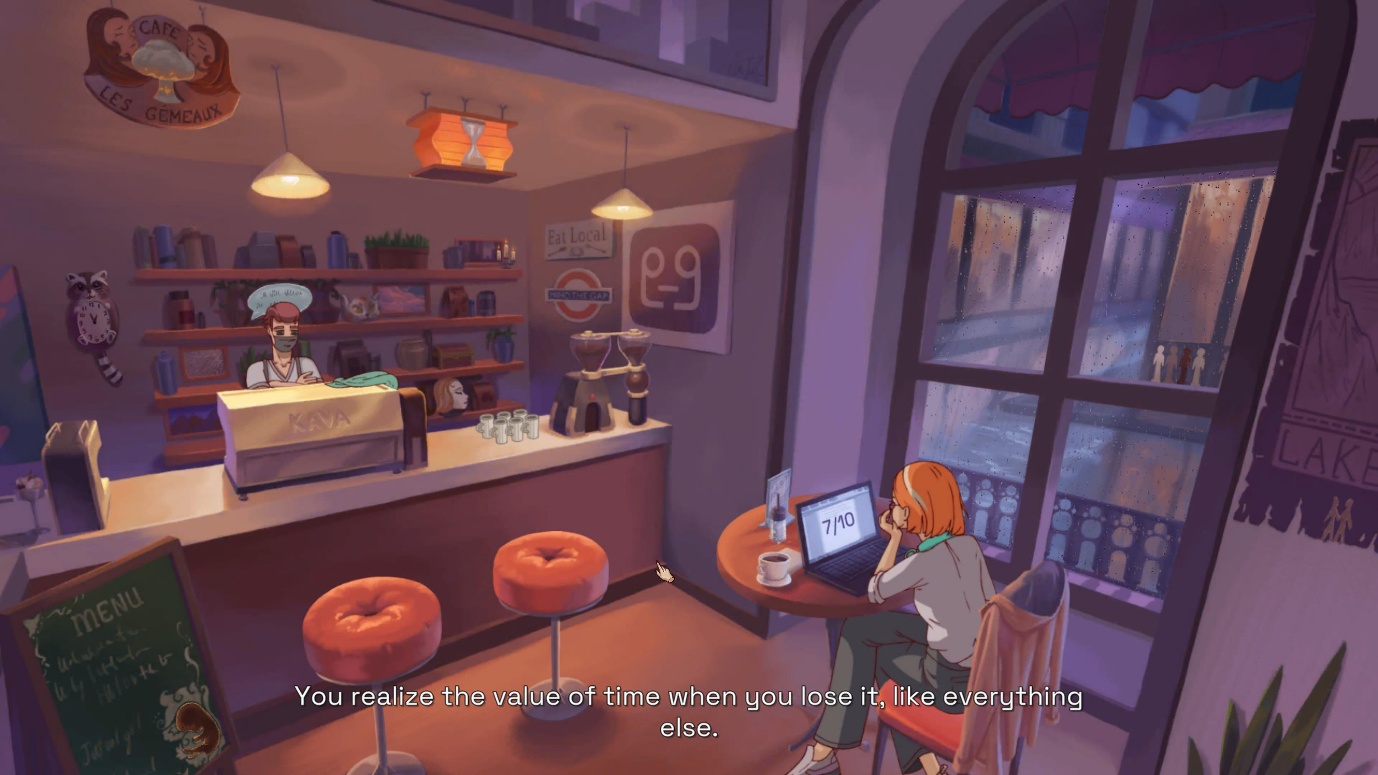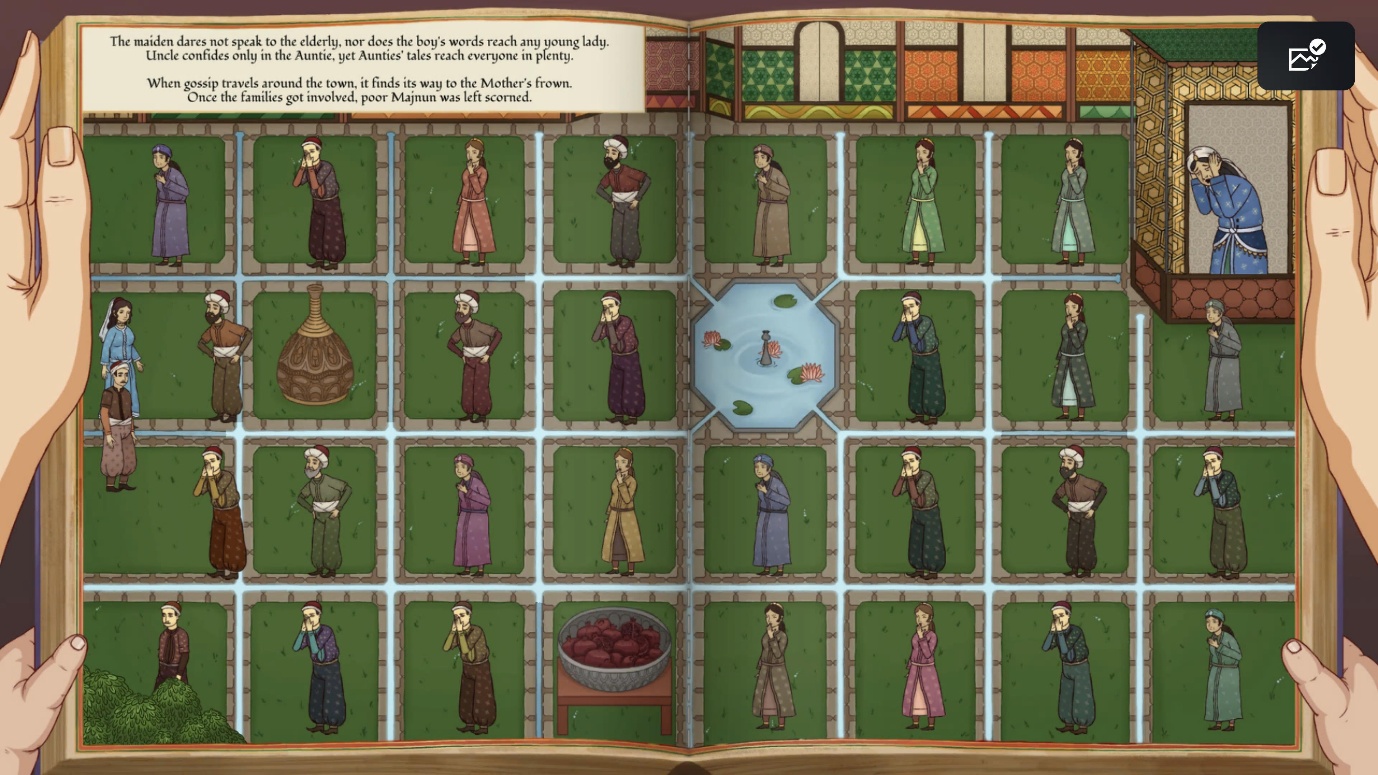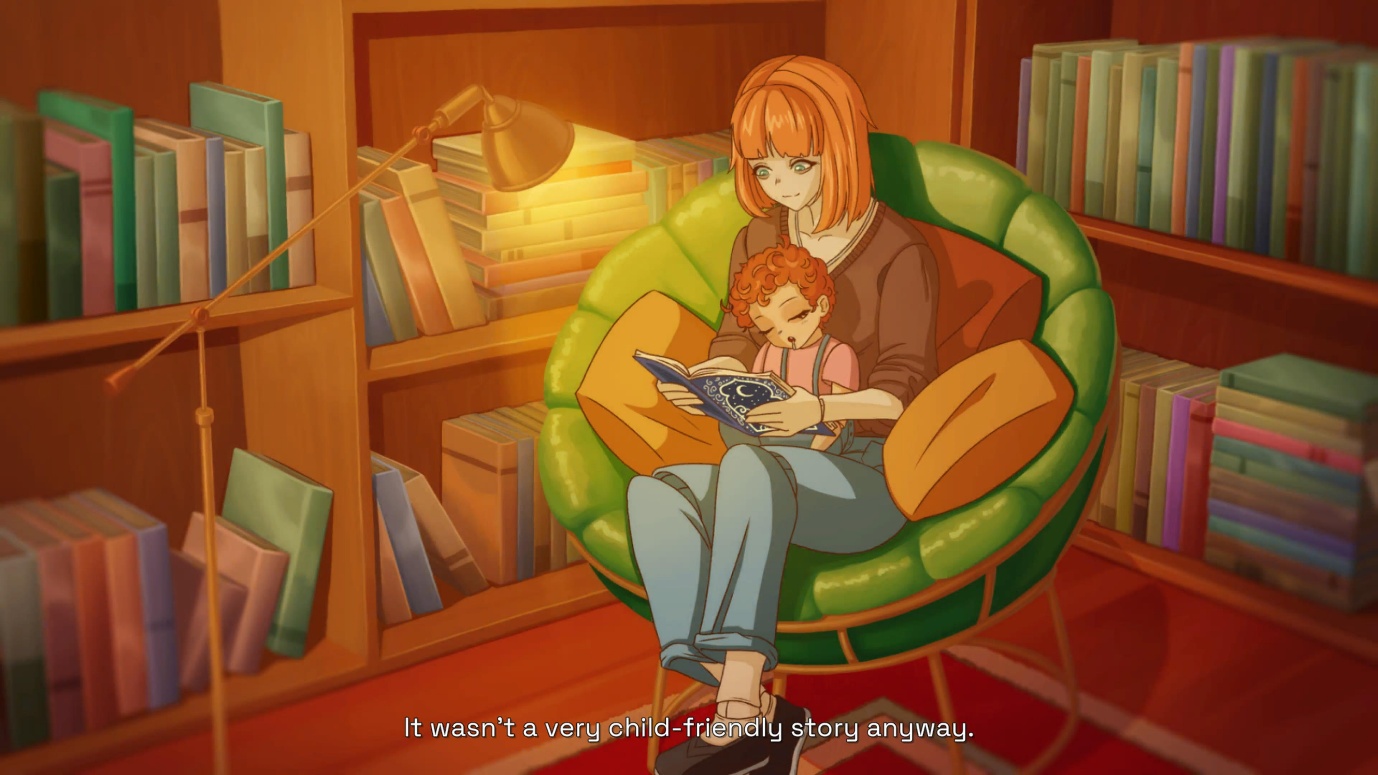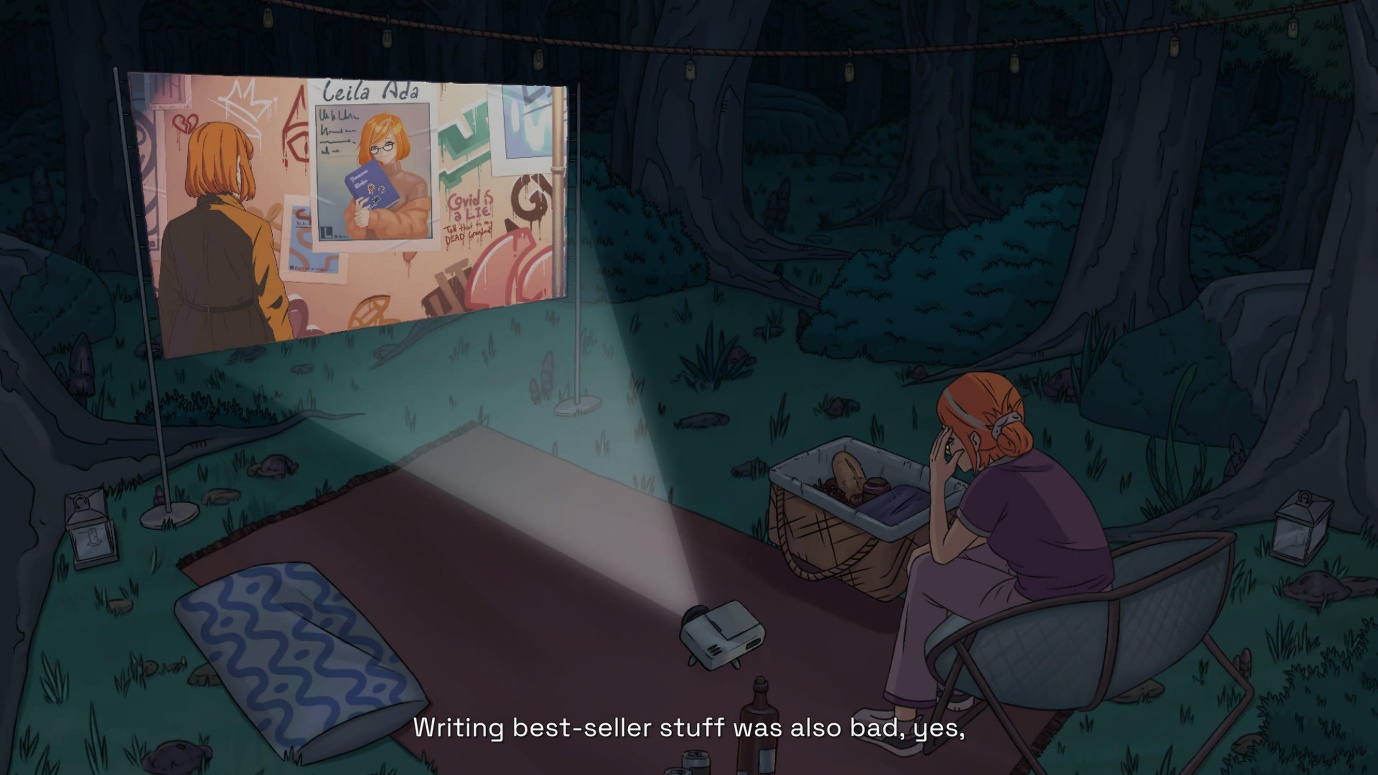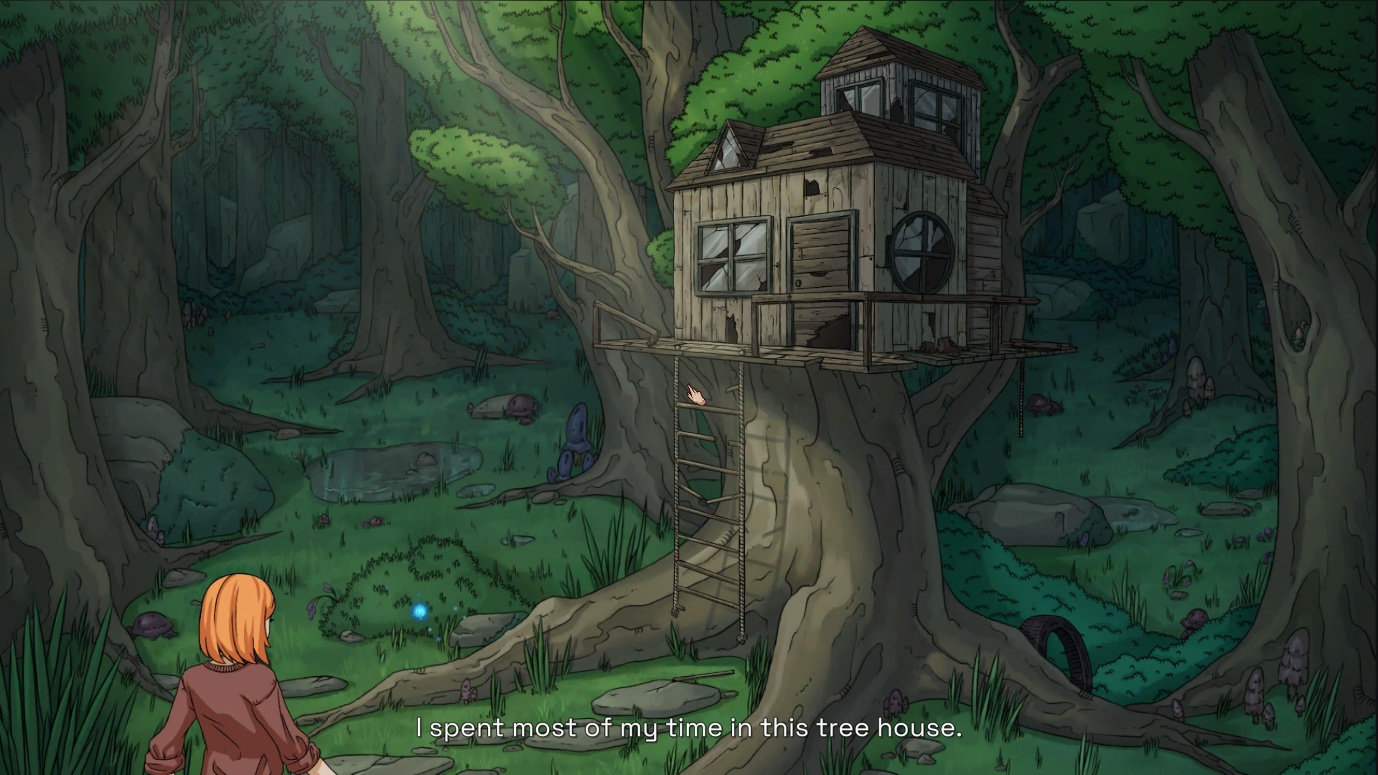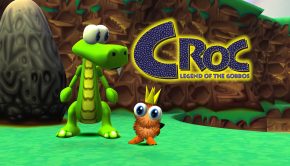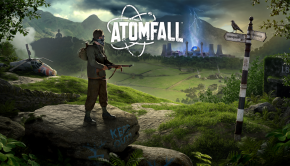Leila Review (PS5)
Leila was a beautiful narrative point and click game with puzzle elements. I was left wanting more, and I’m still not sure if that’s a criticism of the length of the game; or a benefit of the games pacing. The gameplay elements are very simple, and I found myself more engaged in the art, the themes explored, and the style of story-telling – especially the brilliant final sequence. I’m a busy parent, so it is difficult for me to ignore parts of the game that I didn’t feel respected my time and that heavily influenced how I feel about the first half of the game. For the those of you looking for a pleasant and interesting art experience with gaming as medium rather than an ends, I would recommend checking this out.
Leila has been developed by Ubik studios and their published ‘manifesto’ reminded me more of art installations and interactive art experiences that show during festivals than video games. After playing through Leila I considered this context more and more as I pondered my conflicted feelings about the game’s length and the themes it touches on.
Broadly, Leila is a mixture of point-and-click and puzzle gameplay despite ‘reading’ as a visual novel. Ubik studios invite you to ‘enter the world of an everyday woman’ who in turn is exploring her past in gamified memory and interrogating her choices. Every instance of this game is highlighted by beautiful hand-drawn animation and simple yet poignant writing. I lost track of the music as I became increasingly absorbed in the story, likely meaning the sound design is exactly as it should be to help convey the story. I did not encounter any significant choices in the gameplay – I suspect the only significant choice players will make is how they choose to engage in the game as an art experience or as a story.
The puzzle elements and mini-games are relatively straightforward, although it is lovely that each puzzle progresses a story beat rather than simply prolonging it. I don’t see myself as strong at visual puzzles, so I was grateful that the majority of these elements were only just complicated enough to increase my investment in the games story. There is a ‘help’ function for solving puzzles and mini-games – unfortunately I found it a bit hit-and-miss, particularly when I was hoping to use for a particularly laborious puzzle that I felt was wasting my time and instead the help function offered literally nothing.
My conflicts about the puzzles in this game come down to the balance between immersion, and a lack of respect for my time in an already brief game – I did not enjoy the time I spent iterating minor aspects of puzzles just to get to a new story beat and I resent that a significant portion of my time with this was spent doing clicking for the sake of it, rather than considering the story and the art. And yet I can reflect on my thoughts and feelings just prior to this gameplay barriers, and I remember being most absorbed and immersed in the story. So perhaps for someone smarter or more familiar with these genres this will only enhance their experience – worth keeping in mind if you are only a dabbler like me.
While I’m speaking to my critical conflict, I might as well touch on Leila’s length and voice acting. It felt unfortunately short for me – particularly when I spent the first third struggling to engage because of the voice acting (in English), only to be left wanting more by the latter half and the ending sequence of animation. When I consider Leila with the same lens I would use for the games I usually engage in, I feel it is woefully short – however when I consider Leila has a narrative art piece I feel it is ‘just right’. I’m not sure if this conflict is my problem or Ubik’s – but I raise this as an issue only so that the rest of you might engage in the beginning of Leila with less friction than myself and maybe have a more positive experience.
On the voice acting – the voice actor herself is wonderful, with a warm rich delivery. And the writing is concise and simple, acting as an accompaniment for the art rather than distracting from it. And unfortunately, I felt literally nothing between each line delivery for the first third of the game, until I got used to the ‘gap’ and filled it with emotional context for myself. My best way of describing it – it just didn’t hit for me. I imagine it is like what audiophiles complain about when they point out the difference between records and compressed audio files.
Overall I really enjoyed my experience with Leila, particularly the hand-drawn animations and how they drive the story. I’m hesitant to emphasis the ‘arty’ elements of this game as an ‘experience’ because I can remember so many times how hard it was for me to engage in a game that only ‘smart people’ play (or how hard it is to admit enjoying a game that only ‘dumb people’ play). On the other hand the more I reflect on my experience of Leila, rather than my playing of Leila, the more I realise I enjoyed it. Despite some friction from voice acting and annoying puzzle bits, I think this is a solid experience worth enjoying on PS5.


